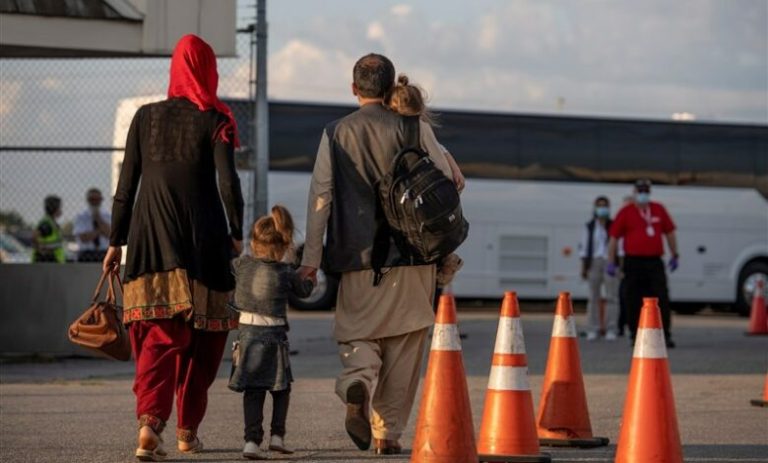On Friday, August 30, 2024, the German government deported a group of 28 Afghan men to Afghanistan. This was the first deportation since the Taliban took power in Afghanistan three years ago. Steffen Hebestreit, government spokesman, stated: “These were Afghan nationals who were all convicted criminals, had no right to remain in Germany, and against whom deportation orders had been issued.”
Proponents and opponents of these deportations made statements regarding this measure.
Proponents of Deportation
Proponents of deportation emphasize that criminal refugees should not remain in Germany and base their view on German law. Deportations are seen as a necessary part of a functioning asylum system, distinguishing between those in need of protection and those not in need. It is emphasized that rejected asylum seekers are legally obliged to leave the country.
According to a recent survey of the German population, 93% of respondents support deportations to some extent, with 52% in favor of returning all rejected asylum seekers.

Proponents refer to the following laws:
– Residence Act (AufenthG): This law forms the legal basis for the stay of non-German nationals in Germany. According to §§ 53 para. 1, 54 AufenthG, a foreigner can be deported if convicted of a crime and sentenced to at least one year in prison. Supporters of deportation point to the special powers granted to judges and immigration authorities under §§ 53 and 54 AufenthG. They argue that German law gives judges and immigration authorities significant discretion in deciding deportations, especially in cases of serious crimes. Authorities can order deportation based on discretionary decisions if they believe that public security or order is at risk. This applies, among others, to individuals convicted of crimes such as rape, where their continued presence in Germany could be seen as a threat to society. In more severe cases, deportation can be mandatory, especially if the person has committed a crime that directly endangers public safety or has repeatedly engaged in criminal activities.
– Asylum Act (AsylG): This law also plays a role in deportations, particularly in dealing with refugees and asylum seekers. § 60 AsylG describes the prohibition of deportation to a country where the person faces persecution or inhuman treatment. However, § 60 AsylG also contains exceptions to this rule, based on international obligations (including the European Convention on Human Rights, ECHR), which Germany must consider before deportation. This section allows deportations even when a general prohibition exists if the person’s presence in Germany is considered a significant threat to public safety.
– Criminal Code (StGB): Although the StGB does not directly address deportations, convictions under this law often lead to deportation proceedings under the Residence Act. Serious crimes, including rape, can lead to legal procedures that may end in deportation ordered by immigration authorities or courts.
Opponents of Deportation
Opponents of deportation, including organizations such as ProAsyl and Amnesty International, along with other human rights groups and legal experts, have expressed significant legal and ethical concerns about the deportation of Afghan refugees from Germany, particularly under current conditions in Afghanistan. Their arguments focus on several key legal points:
– Violation of the Non-Refoulement Principle
International law and non-refoulement: A central legal argument against deportations is that they violate the non-refoulement principle, enshrined in both international and European law. Article 33 of the 1951 Geneva Refugee Convention and Article 3 of the European Convention on Human Rights (ECHR) prohibit the return of individuals to a country where they face real danger of persecution, torture, or inhuman or degrading treatment. These organizations argue that deporting individuals to Afghanistan, given the ongoing violence, instability, and human rights abuses, including torture, arbitrary detention, and extrajudicial killings, directly violates this principle.
– Basic Law: Article 1 of the Basic Law protects human dignity, and Article 16a guarantees the right to asylum for those persecuted for political reasons. ProAsyl and Amnesty International argue that deporting individuals to Afghanistan, where they are likely to face serious threats to their lives and well-being, is inconsistent with these constitutional protections. They claim such deportations undermine the German government’s obligation to protect human dignity and provide asylum to those seeking protection.
– Violation of Human Rights in Afghanistan
Many international observers, including the United Nations and other human rights organizations, consider Afghanistan extremely unsafe due to ongoing armed conflicts, widespread violence, and severe human rights abuses. ProAsyl and Amnesty International argue that deporting individuals to such an environment is not only irresponsible but also illegal under both German and international law. They highlight the risks of persecution, targeted killings, and the lack of access to basic human needs such as food, shelter, and medical care for deported individuals.
– Specific Vulnerabilities: These organizations also emphasize the increased risk for certain groups, such as women, children, and ethnic or religious minorities, who are particularly vulnerable under the Taliban regime. They argue that deporting these individuals exposes them to significant harm and potentially violates their fundamental rights.

– Insufficient Individual Risk Assessment
Critics of deportations argue that the individual circumstances of the affected persons, such as personal experiences of persecution, family ties in Germany, or specific health conditions, are often not sufficiently considered in deportation proceedings. This could result in a violation of their rights under the Basic Law and the European Convention on Human Rights. The lack of a thorough and individual risk assessment is seen as a major legal flaw in deportation decisions. Human rights organizations have also expressed concerns that the judicial review of individual deportation decisions may not be sufficiently thorough to ensure compliance with legal standards. They also argue that judges and immigration authorities do not have full access to developments in Afghanistan, a situation exacerbated by the lack of official ties between the German government and the Taliban government in power. This could lead to decisions being made that are not in line with Germany’s legal obligations.
Beyond the legal arguments, these organizations also raise ethical considerations, arguing that Germany, as a democratic country committed to human rights, has a moral obligation to protect people fleeing persecution and violence. They emphasize that deporting individuals to a war-torn country like Afghanistan contradicts the values underlying the German legal system and international human rights norms. It is noteworthy that, in recent developments towards religious radicalization, the Taliban announced a law last week recognizing women’s voices as “awrat” (meaning a woman may not speak with anyone outside her family). In another paragraph, it also states that a person’s house will be set on fire if they do not pray in the mosque.
Ultimately, the Federal Administrative Court will have to decide whether deportations to countries like Afghanistan or Syria are legally permissible. The Higher Administrative Courts are currently divided on the deportations to Afghanistan.




